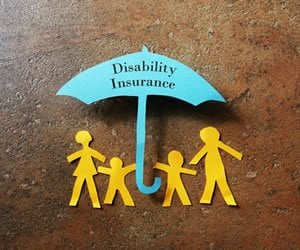
Chronicles of a Med Student: All Aboard the Financial Struggle Bus
I remember the sheer joy of ripping open the letter that granted me a medical ... Read more
Written by: Adelle
Published on: March 14, 2016
Learn how to manage your money as a student and healthcare provider with our articles on student loans, budgeting, insurance, finding a job, investing, and other financial topics.

I remember the sheer joy of ripping open the letter that granted me a medical ... Read more
Written by: Adelle
Published on: March 14, 2016

Many medical students cheerfully expect to be earning a generous income as they begin their ... Read more
Written by: Brian Wu
Published on: January 28, 2016

The thrill and responsibility of holding someone’s life in your hands, the ability to act ... Read more
Written by: Richard Reich
Published on: January 7, 2016

$176,000. It’s a number newly-minted physicians or those in the process of becoming a doctor ... Read more
Written by: Student Loan Hero
Published on: October 21, 2015

Since the medical field is full of a wide variety of job opportunities, it is ... Read more
Written by: Carrington College
Published on: September 28, 2015

In both hospital[1] and group practice settings, physicians are regularly asked to sign employment contracts that ... Read more
Written by: Jennifer Colagiovanni
Published on: July 13, 2015

Memorial Day and Mother’s Day are May’s official holidays, but for millions, graduation day is ... Read more
Written by: Atul Grover
Published on: July 6, 2015

You’ve already done the hard part, you’ve made it into medical school! But how are ... Read more
Written by: AAMC Staff
Published on: July 1, 2015

About to head out on some interviews? First spend some time with these physicians as ... Read more
Written by: PracticeLink
Published on: April 8, 2015

Medical students deal with a lot of scary things: frequent do-or-die exams, looming USMLE or ... Read more
Written by: Brent Schnipke
Published on: January 23, 2015

Avoid common business mistakes to make a smooth transition to private practice.
Written by: Kristen Gramigna
Published on: September 26, 2014

Understanding the role of compensation models and their interplay with contract benefits, coverage and your personal life is crucial to successfully negotiating a compensation package post-residency.
Written by: Sidney Christiansen
Published on: July 7, 2014

How to make the most of your limited budget while in medical school.
Written by: Megan Riddle
Published on: May 9, 2014

Worried about paying off student loans? Find out how here!
Written by: Annie Davis
Published on: November 26, 2013

Plan for financial success despite the challenges of student debt.
Written by: James M. Dahle, MD, FACEP
Published on: November 15, 2013

The role of malpractice tail coverage and what it means for you
Written by: Scott Dutton
Published on: November 28, 2012
Are you prepared to go into private practice at the end of your residency? Dr. Steven M. Hacker offers his tips for ensuring private practice success.
Written by: Steven M. Hacker
Published on: January 16, 2011

With the cost of higher education increasing, student loan debt for health professionals has more ... Read more
Written by: Laura McCarthy
Published on: September 22, 2010

Updated September 19, 2021. The article was updated to correct minor grammatical errors and for ... Read more
Written by: SDN Staff
Published on: May 3, 2008